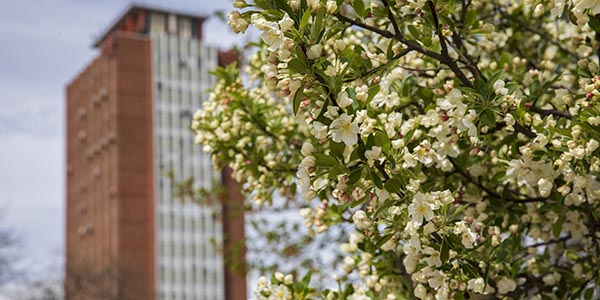New revisions to spring academic calendar
First day of classes is now Feb. 11, semester ends to accommodate student leases

In response to concerns raised when the spring 2021 academic calendar was announced in September, a number of revisions have been made.
“We listened to the concerns,” said Executive Vice President for Academic Affairs and Provost Donald Nieman. “While we haven’t been able to address every concern raised, we have accommodated many of them while also maintaining a schedule that protects the health and safety of our students, faculty and staff and including the requisite number of class days.”
The revisions now have the spring semester starting and ending a few days earlier than originally announced, which takes into account that some of the University’s off-campus students have leases that end before the last week in May. “This updated calendar eliminates lease problem entirely for students with leases ending May 22 or later, and gives everyone a weekend for moving out and returning home.
“We still cannot introduce breaks if we want to have a full semester that ends by Memorial Day and that also deters travel that is inconsistent with public health guidelines,” Nieman added.
In one way, the spring semester will start the same as the fall 2020 semester, with students being tested prior to moving in. “This revision to the calendar provides time for that,” Nieman said. “It also allows a five-week winter session and leaves a five-day break after winter session ends as well, so we will not need to revise the winter session schedule any further. That’s important because it will enable more students to take winter session classes that help them stay on track for graduation or even graduate early.”
The semester will end with two distinct final exam time periods — one in-person and one online. “We’ll work with the deans to encourage about 35% to 50% of our final exams to be online,” Nieman said. “Our experience this fall suggests that range aligns with faculty preferences.”
“We’ve listened to concerns and adapted the calendar for the spring semester so we can meet our obligations to students to provide them with a workable academic schedule in the safest manner possible,” Nieman concluded.
